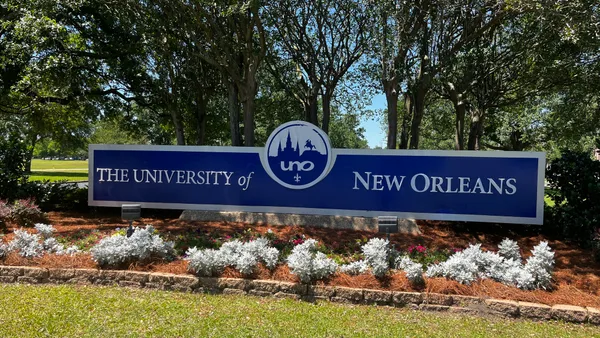Dive Brief:
- California’s community colleges can only funnel students into noncredit-bearing remedial courses in highly specific circumstances after the state’s governor signed a bill Friday largely banning the classes at two-year institutions.
- The legislation states that community colleges must use data to justify decisions to place students into remedial classes, which are designed to help polish their skills in areas like mathematics and English but have been criticized for derailing progress toward a degree.
- State lawmakers had railed against remedial education, which the legislature attempted to mostly remove from community colleges with a law passed in 2017.
Dive Insight:
States like Florida and Louisiana have also moved to curtail use of remedial classes, which critics say burden students and families with unnecessary costs while offering no progress toward a credential.
Research from 2018 found students and families spend $1.3 billion on remedial courses annually. They’re expensive for institutions, too, costing an estimated $7 billion a year.
California already tried to ax these courses at community colleges with a 2017 law that directed these institutions to only place students into remedial education if the institutions can prove they’re highly unlikely to succeed in college-level classes.
However, nearly 50 of the state’s 115 community colleges are still using them, according to public records EdSource obtained.
The new law California Gov. Gavin Newsom signed dictates that community colleges should rely on factors like high school coursework and GPA when determining course placement. Any one of those measures should be used to demonstrate that students should avoid remedial classes.
The Faculty Association of California Community Colleges had opposed the measure, saying some students may benefit from remedial classes, but the legislation did not enable them to take those courses.
Other bills the governor signed Friday include one that authorizes community colleges to provide funding to stopped-out students to try to entice them to reenroll and another that broadens tutoring opportunities for foundational skills and transfer-level courses.
“Reforming remedial education and expanding access to tutoring will help millions of Californians complete their education faster, and many more will continue their dreams because of new opportunities possible when we eliminate the burden of prior debts owed,” Daisy Gonzales, interim chancellor of the California Community Colleges system, said in a statement. “We thank the many student and campus leaders who advocated for these changes, and stand ready to continue to lead an equitable recovery in higher education.”














